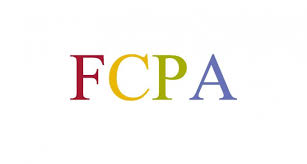The Future of Corporate Criminal Prosecutions (Part IV of IV)
 DOJ has developed a new and innovative model for criminal prosecution of corporations. The jury is still out on whether this model is the best use of public resources.
DOJ has developed a new and innovative model for criminal prosecution of corporations. The jury is still out on whether this model is the best use of public resources.
DOJ frequently touts its successes based on criminal fines collected, numbers of companies investigated, and improvements in the governance of corporations. DOJ is proud of its program, and rightfully so.
DOJ has set in a motion an impressive overhaul of corporate ethics and compliance programs. I would argue that the rise in the compliance profession is the result of DOJ’s aggressive corporate criminal prosecution initiatives.
DOJ’s innovative effort started in the wake of the WorldComm and Enron scandals in early 2000s. DOJ stepped up to the plate then, and developed more effective strategies in the last decade. There is no question that DOJ has expanded its ability to conduct criminal investigations, developed more effective investigative techniques, and employed well-established proactive techniques to target white collar criminals.
At the same time, there are several aspects of DOJ’s criminal prosecution program that raise important policy concerns.
First, DOJ’s expansion of criminal prosecutions to regulatory offenses raises a serious risk of over-criminalization, where prosecutors are fast becoming regulators in their scrutiny of companies in certain industries.
The danger of over-criminalization is creating criminal offenses that require little to no criminal intent, especially in the regulated context. There are few situations, if any, where a company should be held criminally liable under a doctrine of strict liability. The danger of regulatory-type criminal prosecutions can be real and significant to companies and especially innocent shareholders who bear the brunt of large fines imposed on an offending company.
Second, DOJ’s use of NPAs and DPAs to resolve criminal cases short of a trial gives prosecutors considerable and unfettered discretion, and authority to dictate settlements with little to no judicial oversight. Courts have resisted attempts to review DPAs, and have no authority to review NPAs. If DOJ fails to rein in the use of NPAs and DPAs for only extraordinary cases, Congress may step in to regulate DPAs, similar to Tunney Act requirements for the Antitrust Division’s resolution of merger investigations. Congress regulated prosecutors in the antitrust context and may decide to do so again, unless DOJ exercises reasonable discretion on the use of NPAs and DPAs.
Third, DOJ’s ability to maintain quality control over outside counsel investigations will never be as effective as DOJ conducting  its own investigation. By delegating important investigation functions to corporate outside counsel, DOJ will suffer some diminution in quality – it is the nature of the beast. The question is whether that diminution is offset by the manifest benefits of leveraging limited DOJ resources to increase the number of corporate prosecutions.
its own investigation. By delegating important investigation functions to corporate outside counsel, DOJ will suffer some diminution in quality – it is the nature of the beast. The question is whether that diminution is offset by the manifest benefits of leveraging limited DOJ resources to increase the number of corporate prosecutions.
DOJ has to exercise its oversight responsibility with care and prudence to avoid any disparate or unfair results. There are many who claim that DOJ has taken unsupported and untested positions with regard to legal interpretations of criminal statutes. From my vantage point, there are very few persuasive examples of such untested legal positions. To the contrary, most prosecutors have exercised their discretion with care and recognition of the unique role they play in holding corporations responsible for criminal conduct.
It is hard to predict with certainty what DOJ’s criminal prosecution program will look like in the future. Given its track record over the last twenty years, we can expect changes and new innovations.
















2 Responses
[…] case. The FCPA Blog completes a series and reports on a whistleblower’s award. Mike Volkov finishes a series on corporate […]
[…] case. The FCPA Blog completes a series and reports on a whistleblower’s award. Mike Volkov finishes a series on corporate […]